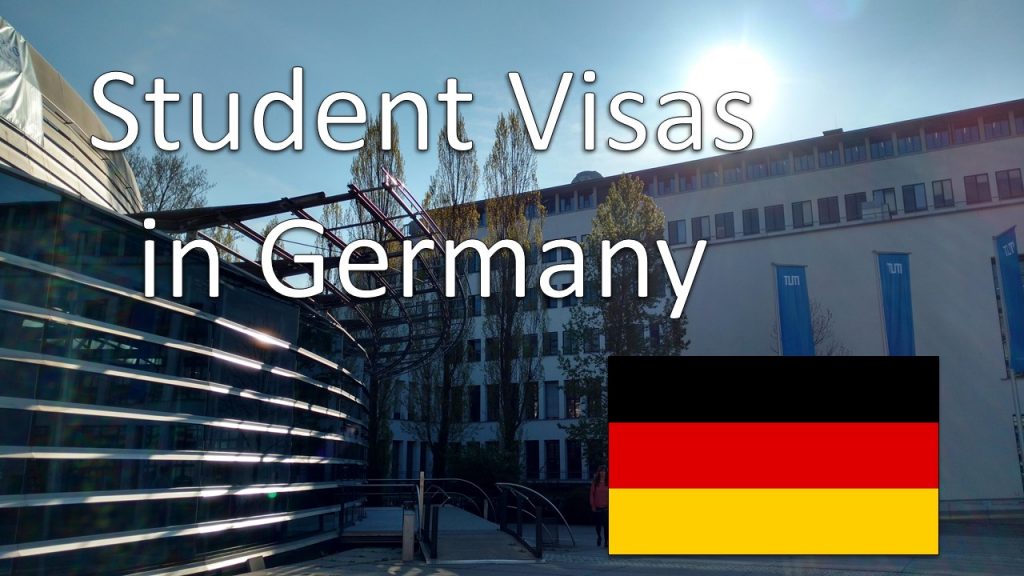You may also get a student visa if you have received a letter of completion of admission from an equally recognized institution, university of applied sciences, college of arts and music, or other equally recognized higher education institution.
The German student visa allows you to study either full-time at the university studies or some preparatory measures before such studies, like a Foundation course.
Applying for a German student visa the right way increases your chances for acceptance, and also helps you eliminate factors that can lead to rejection.
READ ALSO: University of Alberta Scholarships in Canada 2022 | Fully Funded
Types of Study You Can Follow With a German Student Visa?
As a student planning to study in Germany, a German student visa can be given to your expected study type is one of the following or if you’re expecting to attend any of the following types of studies:
- A Full-time Academic study.
- A German language course for studies.
- State preparatory college ‘Studienkolleg’. This is a course foreigners have to undertake. You take this course if your school-leaving certificate is not recognized in Germany. After completing the course, you’ll be sitting for the test “Feststellungsprüfung”. You will get a certificate known as the University entrance qualification if you succeed in passing this test. And with this certificate, you’ll be able to apply for university admission in Germany.
- A Propaedeutic course
- Mandatory preliminary internship.
How to Apply for a German Student Visa
The application process for a German student visa is very straightforward. When you want to begin your application, you will need to contact a German embassy or consulate in your country.
You can contact the embassy or consulate office online or go to the physical location in your country. You can find some of the addresses of the German diplomatic missions on the website of the Federal Foreign Office at www.germany.info/visa.
Types of Germany Student Visa you Need?
The duration of your study can also determine the type of visa you may need. And also the length of the visa that may be granted to you. These are some of the student Visas you can choose from.
READ ALSO: AUC Scholarship Fund 2022-2023 – Study in the Netherlands
Schengen Visa: A Schengen visa type can be used by students for their studies for up to 3 months. This Visa is for a short stay. This visa can also be used by tourists to visa some European cities. For this visa, it takes about 25 days or more for the German student visa to begin. The processing time can also be dependent on the country and the German embassy you are applying with.
German National Visa: As a student, if you want to travel for your studies in Germany for longer than 3 months, you need a German National Visa. This visa is for students who want to travel for school that will last more than 3 months. Note that, when you arrive in Germany with a German national visa, you’ll have to extend or prolong your stay by applying for a German residence permit visa. You can get this permit visa by contacting the Foreigner’s Office.
Requirements to Apply for a German Student Visa
You can apply for a German student visa at the German embassy or consulate or other intermediating application agencies in your home country. The decisions made about your application are all based on the information and the supporting documents you provide. So ensure to provide correct and valid documents. The documents required also have to be sent as originals, accompanied by two photocopies of each.
Provided below is a practical checklist of the required documents to apply for a German student visa:
Checklist
- Two duly completed national visa application forms.
- Valid national passport. (See passport requirements)
- Two recently taken biometric portrait photographs. (Strict requirements, read the photo requirements page).
- Proof of admission at a German education institution. (Send any of the following).
- University admission letter “Zulassungsbescheinigung”.
- Letter of admission in a foundation course. Issued by a Studienkolleg.
- Letter of admission in the propaedeutic course.
- Letter of admission in a preparatory German language course.
- Proof of German language proficiency. (For German-only and mixed-language study programs).
- Proof of English language proficiency. (For English and mixed-language study programs).
- Authenticated certificates of earlier education.
- German university entrance qualification “Abitur”. If you’ve studied in a German education provider abroad. (If not, send the following documents).
- Recognized foreign academic qualifications. It must show you have a qualification equally recognized as the German Abitur.
- Academic records or transcript.
- Curriculum vitae. It has to be accompanied by evidence of previous and current internships and any work experiences.
- Means of subsistence “Finanzieruungsnachweis”. The evidence you provide must show you have enough money to cover your living, accommodation, and study costs. (Send any of the following).
- Blocked bank account.
- Letter of commitment by a resident “Verpflichtungserklärung“.
- Letter of a declaration by a parent.
- Scholarship awarding certificate.
- Student health insurance
- Motivational letter.
- Marriage certificate. (Send this if you’re married). You can also send a birth certificate of any child you have with your spouse.
- Proof of having paid the German student visa application fee.
How Much Bank Balance Needed for Germany Student Visa?
As of 2021, the required amount by the German Embassy or Consulate office is €10,332. This amount is to be deposited into the blocked bank account when applying for a student visa to Germany at the embassy in your home country.


